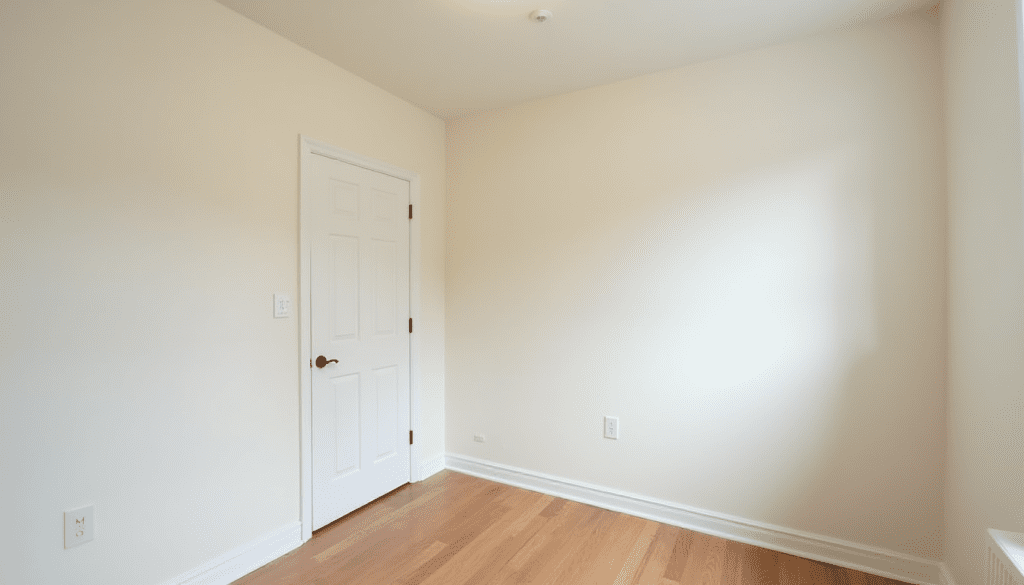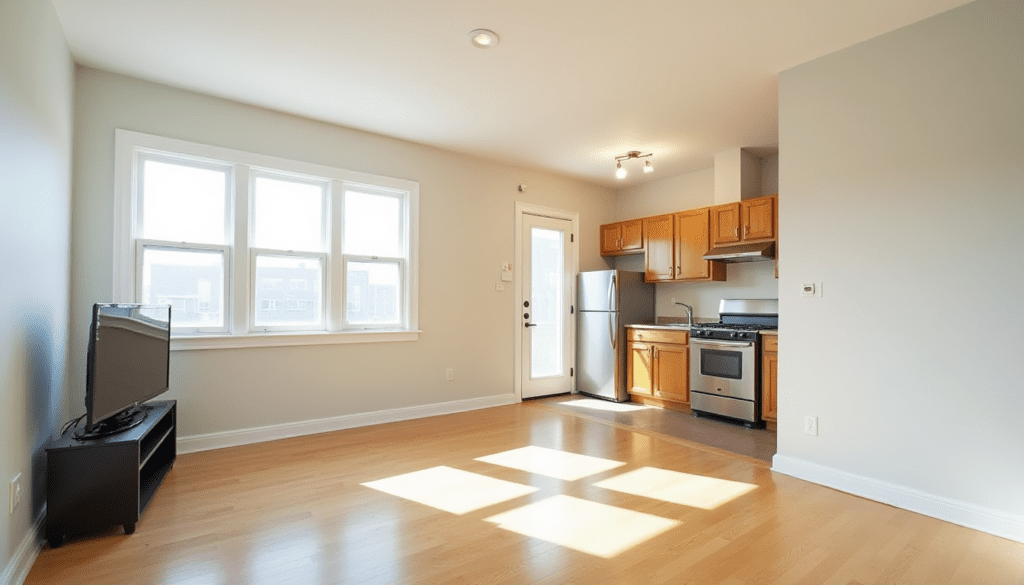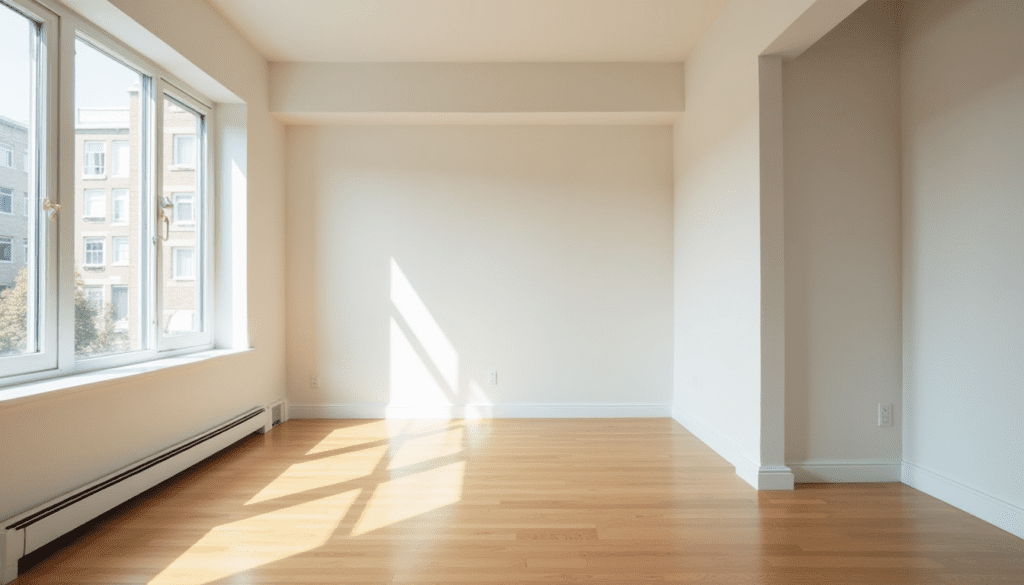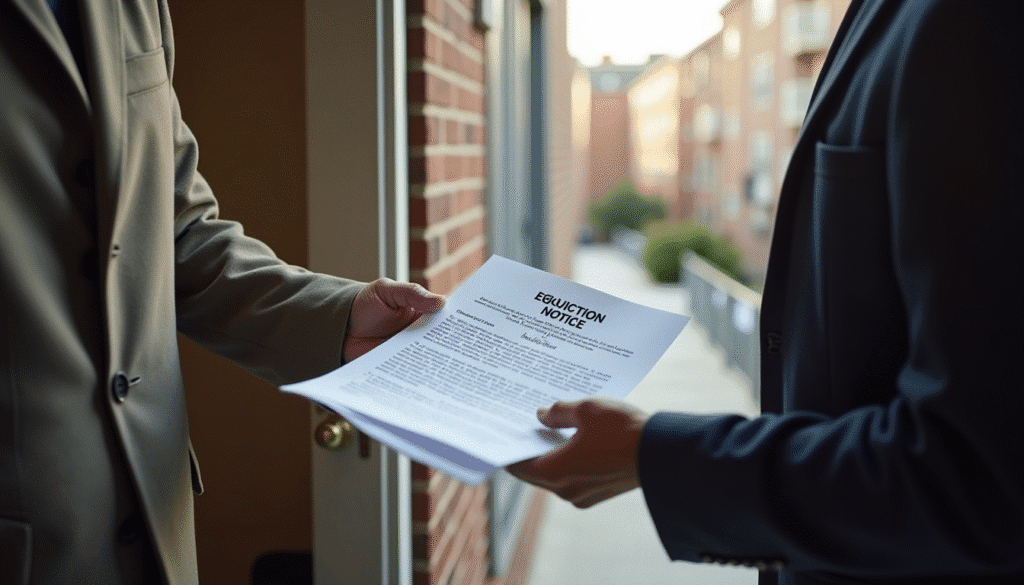When a tenant in Plainfield, New Jersey fails to pay rent or otherwise breaches their lease, the landlord may serve what is commonly called a “3-Day Notice to Pay or Quit.” In this article we’ll walk through how this notice works specifically in Plainfield (within Union County County), what laws apply, how it must be served, what rights tenants have, and what landlords need to do to stay compliant. Whether you’re a landlord or a tenant, understanding your options and obligations can help avoid costly mistakes and legal pitfalls.
1. Why this notice matters in Plainfield, NJ
The rental market in Plainfield continues to evolve, and both landlords and tenants face heightened scrutiny around compliance with the law. A 3-Day Notice to Pay or Quit is a pivotal step: for landlords, it triggers the formal eviction process; for tenants, it’s a clear warning that they must either pay the overdue rent or vacate. Getting this step wrong can delay the case or even result in dismissal, so the stakes are high.
From the tenant’s perspective, receiving a 3-Day Notice is often the first clear indication that the landlord is preparing to seek possession of the property. In Plainfield, local property managers and owners generally use this notice when rent remains unpaid and they want to preserve their rights under the law. It acts as both a warning and a final opportunity to avoid eviction proceedings. For tenants unfamiliar with the process, this is a critical moment to act — whether by paying what’s owed, negotiating, or seeking legal advice.
2. The legal basis under New Jersey law
The underlying legislation for eviction notices in New Jersey is found in the New Jersey Statutes Annotated § 2A:18 61.2 and surrounding sections of the Anti-Eviction Act. Under N.J.S.A. 2A:18-61.2, the statute sets out when a “Notice to Quit” must be given and how much time the tenant has before a court complaint can be filed. :contentReference[oaicite:2]{index=2}
Specifically, for certain serious breaches such as disorderly conduct or destruction of property, the landlord must give a three-day notice before filing for possession. :contentReference[oaicite:3]{index=3} For non-payment of rent, however, the statute makes different rules — a 3-Day Notice is not always required and in some cases the landlord may proceed more directly. :contentReference[oaicite:4]{index=4}
It’s worth noting that even after a judgment for possession is entered in court, tenants still have a legal window (three business days) to pay all the rent and costs to stop the eviction. :contentReference[oaicite:5]{index=5} These protections reflect New Jersey’s strong tenant-possession safeguards. Understanding this mix of statutory provisions is vital for using the 3-Day Notice properly in Plainfield.
3. When a 3-day notice is used (nonpayment vs other violations)
In Plainfield, the 3-Day Notice to Pay or Quit is most commonly used in cases of unpaid rent, but there are distinctions depending on the type of breach.
Nonpayment of rent: typical scenario
A tenant fails to pay rent by the due date, the landlord issues a demand and then often serves the notice. Under New Jersey law, for nonpayment the landlord may sometimes file immediately without a formal 3-day notice, especially if they have not accepted late payments from the tenant. :contentReference[oaicite:6]{index=6}
However, best practice in Plainfield is to issue a clear written demand and then the notice, giving the tenant the opportunity to pay within the three-day window or vacate. This preserves the landlord’s rights and keeps the case on solid footing.
Other grounds: lease violations, disorderly conduct, damage
When the breach is something other than nonpayment — for example, unauthorized occupants, damage to the property, illegal activity, or serious lease violations — the statute often requires a formal “Notice to Quit” giving at least three days’ notice before filing for eviction. :contentReference[oaicite:7]{index=7}
For landlords in Plainfield, distinguishing between these situations is important: using a 3-Day Notice when a 30-day notice was required (or vice versa) can lead to case dismissal. As one legal firm notes, “Once the Notice to Quit is served … the landlord must then wait the requisite period of time before filing its complaint.” :contentReference[oaicite:8]{index=8}
4. What the notice must contain
A valid notice in Plainfield (and in New Jersey generally) must include specific elements so that it is enforceable and the court will accept it. Omitting required information or using improper service can invalidate the entire eviction process.
Key required elements (tenant name, property address, amount due, deadline)
The notice should clearly identify the tenant by name, the rental property address (within Plainfield, NJ), the amount of unpaid rent (if applicable) or the specific lease violation, and the deadline — which in the case of a 3-day notice is three days from the date of service (or whichever day the statute and local practice require). Use of plain, direct language reduces confusion.
In the case of nonpayment of rent, the notice should clearly state: “You have three days from receipt of this notice to pay the amount in full or vacate the premises. If you fail to do so, landlord may file a complaint for possession in the Special Civil Part of Union County Superior Court.” Including the section of statute (2A:18-61.2) can help show you understand the law, though it’s not required.
Specifics for Plainfield / Union County context
Serving written notice in Plainfield typically means delivering it in accordance with the rules of the New Jersey Courts’ Landlord-Tenant summary process. According to NJ Courts, after judgment for possession, the tenant still enjoys a three-business-day window to pay. :contentReference[oaicite:10]{index=10}
Landlords in Plainfield should also check local municipal regulations and any lease provisions that may impose additional requirements. For example, if the lease itself states that rent is payable as “additional rent,” the landlord has stronger rights to seek eviction for non-payment of that item. :contentReference[oaicite:11]{index=11}
Using proper service (personal delivery, certified mail, posting according to statute) is crucial. The statute (N.J.S.A. 2A:18-54) allows posting or substituted service if direct service fails. :contentReference[oaicite:12]{index=12}
5. Serving the notice in Plainfield, NJ
In Plainfield, serving a 3-Day Notice the correct way is just as important as the contents of the notice. Improper service can invalidate the notice and delay the entire eviction case. Let’s walk through the service methods and timing issues.
First, as noted by the New Jersey Courts, tenants cannot simply be locked out or evicted without a court order—even after a notice is served. :contentReference[oaicite:13]{index=13} The correct service of the notice is the landlord’s first safeguard.
There are several acceptable methods: personal delivery to the tenant, delivery to an adult occupant at the premises, or posting in a conspicuous place if the tenant cannot be found, followed by certified mail. The law (N.J.S.A. 2A:18-54) allows posting when direct service is unsuccessful. :contentReference[oaicite:14]{index=14}
Secondly, timing matters. Although it’s called a “3-Day” notice, some complexity enters because the law sometimes uses business days or calendar days. Best practice in Plainfield is to specify “three calendar days from receipt of this notice” unless your lease or local rule indicates otherwise. Also, always record the date of service and method of delivery in your file.
To illustrate: if you served the notice on June 1st, the tenant must either pay or vacate by June 4th (assuming calendar days) unless the lease or local practice uses business days. Documenting this carefully will help avoid disputes or mistakes in court.
Third, keep a copy of the served notice in your records along with proof of service (certificate of mailing receipt, signed acknowledgement, posting photo). In Plainfield, where municipal housing enforcement and courts may examine landlord records, having this documentation assists your case in the Union County Superior Court Special Civil Part.
Finally, after the 3-day window expires and the tenant has neither paid nor vacated, the landlord may proceed to file a complaint for eviction. It’s important to remember that the filing cannot occur before the appropriate notice period has passed. If you jump the gun, the case may be dismissed for lack of jurisdiction. :contentReference[oaicite:16]{index=16}
Moving forward, the next sections will cover what happens after the notice expires, what rights the tenant has, common mistakes landlords make, and strategies specific to the local Plainfield market. If you’d like me to continue with those sections now, I can proceed.
::contentReference[oaicite:17]{index=17}
6. Tenant’s Rights After Receiving the Notice
Tenants in Plainfield, NJ, have clear and strong rights under the New Jersey Anti-Eviction Act. Receiving a 3-Day Notice to Pay or Quit doesn’t automatically mean immediate eviction. Instead, it signals the beginning of a legal process that must follow specific steps. The law ensures that tenants cannot be removed from their homes without a valid court order issued by the Superior Court of New Jersey, Union County Special Civil Part. This process helps prevent illegal lockouts and protects tenants from unfair treatment.
When a tenant receives a notice, they should first verify the details: Is the rent amount correct? Was the notice served properly? Does it comply with New Jersey law? If the notice includes wrong dates or incorrect rent calculations, it may be invalid. Tenants also have the right to request documentation proving the amount owed and may attempt to negotiate directly with the landlord to resolve the issue before court proceedings begin.
New Jersey law (N.J.S.A. 2A:18-61.2) allows tenants to “cure” the default by paying rent within the required timeframe. In Plainfield, most landlords accept payment even after a notice is issued, provided the payment covers the full amount due and any additional late fees specified in the lease. Once the rent is paid, the landlord generally cannot proceed with the eviction based on that same nonpayment incident.
Paying Within the 3-Day Window
When the tenant pays the overdue rent within the three-day period, the notice becomes void for that instance. However, if the tenant only makes a partial payment or promises to pay later, the landlord can still proceed with filing for eviction. The tenant’s best protection is to pay the full amount due — including any legal or late fees — and obtain a written receipt or confirmation from the landlord.
Under NJ court guidance, landlords should not refuse full rent payment during the cure period. Doing so could be viewed as acting in bad faith and may lead the judge to dismiss the eviction complaint. ([njcourts.gov](https://www.njcourts.gov/self-help/landlord-tenant?utm_source=chatgpt.com)) Therefore, communication and documentation are vital for both sides.
Defenses or Objections a Tenant Might Raise
If the tenant believes the notice or the eviction filing is improper, they can raise defenses in court. Common defenses in Plainfield include:
- Improper notice: The landlord didn’t give the required notice or failed to serve it correctly.
- Payment dispute: The amount claimed is incorrect or already paid.
- Retaliation: The notice was issued after a tenant reported unsafe conditions or requested repairs.
- Discrimination: The eviction is based on protected characteristics such as race, disability, or family status, in violation of the NJ Law Against Discrimination.
Plainfield tenants facing a 3-Day Notice should consider consulting a local legal aid group or the New Jersey Legal Services office. These organizations can help tenants verify if their rights have been violated and guide them through court appearances.
7. Landlord’s Options If Tenant Does Not Comply
If the tenant neither pays the rent nor vacates the property after the 3-day period expires, the landlord may proceed to the next stage — filing a complaint for possession in the Union County Special Civil Part, Landlord-Tenant Section. At this point, the landlord must attach proof of the notice, documentation of unpaid rent, and any supporting evidence of lease violations.
The complaint starts the official eviction process. A court date is scheduled, usually within two to three weeks. Both parties receive notice of the hearing, where the judge determines if eviction is warranted. During this stage, landlords should ensure they have followed all procedural requirements: correct notice form, proper service, and accurate payment records.
Landlords who file too early (before the notice period has expired) or without valid notice may have their case dismissed. In Plainfield, where tenant protection rules are strictly applied, even small procedural mistakes can lead to delays and additional costs. Following the NJ eviction process accurately helps landlords avoid these setbacks.
Filing for Eviction in the Special Civil Part (Union County)
The Special Civil Part handles landlord-tenant matters for Plainfield and other municipalities within Union County. To file, landlords must complete a complaint form available through the NJ Courts website and pay the filing fee. After filing, the court issues a summons and complaint, which must be served to the tenant by an authorized process server or court officer.
If the tenant fails to appear in court, the judge may enter a default judgment for possession. However, even after judgment, the tenant has an additional three business days to pay all rent and costs to stop the eviction. This rule reflects New Jersey’s focus on preserving housing stability whenever possible.
Judgment for Possession and Warrant of Removal Timeline
Once the landlord obtains a judgment for possession, they can request a Warrant of Removal, which allows the county constable to remove the tenant. However, the constable must provide at least three days’ written notice before execution. This means the tenant still has a brief window to move out voluntarily or settle the balance.
In Plainfield, the timeline from filing to actual removal can vary depending on court scheduling, tenant responses, and holidays. On average, the process can take between four to eight weeks from the initial 3-Day Notice. Landlords should avoid “self-help” actions such as changing locks or shutting off utilities, which are strictly illegal under N.J.S.A. 2A:39-1.
8. Common Mistakes Landlords Make in Plainfield
Even experienced property managers in Plainfield occasionally make errors that jeopardize eviction cases. Understanding these pitfalls can save time, money, and legal frustration.
Improper Service of Notice
Failing to deliver the notice correctly is one of the most frequent mistakes. Some landlords tape the notice to the door without mailing it or proof of delivery. While posting can be acceptable, it must be accompanied by certified mail or another authorized method under N.J.S.A. 2A:18-54. Documentation of service — including receipts and photos — should always be retained.
Accepting Partial Payment and Jeopardizing the Case
Another common issue arises when landlords accept partial payments after serving the notice. Under New Jersey law, accepting partial rent can reset the eviction clock or invalidate the notice. Once any rent is accepted, the landlord may need to issue a new notice if the tenant remains in possession. The best practice is to refuse partial payments after the 3-Day Notice unless the tenant agrees in writing that the balance remains due and eviction may proceed if unpaid.
9. Impact on Tenants in Plainfield — What to Watch Out For
For tenants, the impact of a 3-Day Notice extends beyond the immediate threat of eviction. An eviction judgment becomes part of public record and may affect future rental applications. Plainfield tenants should act quickly to communicate with landlords, seek assistance programs, or verify whether the notice was properly served. Ignoring a notice rarely helps; it’s better to engage early and document every step.
Low-income tenants can reach out to the Legal Services of New Jersey (LSNJ) for free or low-cost legal advice. These organizations provide resources to verify landlord compliance and help tenants avoid unnecessary evictions. Being proactive is key — paying attention to details and deadlines can make a significant difference.
Up next, we’ll explore practical tips for landlords and property managers in Plainfield, compliance strategies, and how market trends affect the eviction process. Stay tuned for those sections.
Disclaimer: This article is for informational purposes only and does not constitute legal advice. For personalized legal guidance regarding a 3-Day Notice to Pay or Quit in Plainfield, NJ, consult a licensed New Jersey landlord-tenant attorney.
10. Tips for Landlords and Property Managers in Plainfield
Managing rental properties in Plainfield, NJ, requires attention to both state and local housing regulations. Landlords and property managers who follow best practices can avoid disputes and reduce costly delays in the eviction process. A key takeaway is that documentation and compliance are your best friends. Every 3-Day Notice, communication, and rent transaction should be properly logged and stored for future reference.
Before issuing a notice, review your lease agreement carefully to confirm what it says about rent due dates, grace periods, and penalties. Make sure you’re following both the lease and New Jersey’s legal requirements. If your lease states that rent is due on the first of each month with a five-day grace period, do not issue a 3-Day Notice until that grace period expires. In Plainfield, consistency between your lease language and the statutory notice period strengthens your case in court.
Always use a dated, written notice that follows N.J.S.A. 2A:18-61.2 format. Avoid using generic online templates that don’t comply with New Jersey’s specific landlord-tenant statutes. Remember that courts in Union County take procedural accuracy seriously — small technical mistakes can result in dismissal of your complaint, forcing you to restart the entire process.
Documentation Best Practices
Every landlord or property manager in Plainfield should maintain a paper or digital record for each tenant, including:
- Copy of the signed lease and all renewals or amendments
- Payment history (dates, amounts, methods)
- Copies of notices served (including the 3-Day Notice to Pay or Quit)
- Proof of service (certified mail receipts, delivery confirmations, photos of posted notice)
- Correspondence between landlord and tenant regarding rent or repairs
Having detailed records not only strengthens your position in court but also helps in communication and dispute resolution. Many Plainfield property managers use digital property management platforms like RentShield Property Management or Buildium to automate these processes and reduce administrative errors.
Maintaining Compliance with NJ Statutes
Compliance goes beyond just serving notices. New Jersey’s Anti-Eviction Act (N.J.S.A. 2A:18-61.1 et seq.) outlines when and how landlords may recover possession. Certain tenants — such as senior citizens, individuals with disabilities, and those living in rent-controlled or subsidized units — may have additional protections. Before taking action, landlords should verify if the property or tenant is covered by these special provisions.
In Plainfield, where many properties fall under local housing inspection programs, landlords must also ensure that their rental licenses and inspection certificates are up to date. Failing to maintain a valid Certificate of Occupancy or rental license can block your ability to file eviction actions in court.
11. How Local Market Conditions in Plainfield Affect the Process
Plainfield’s rental landscape is a mix of multifamily homes, small apartment buildings, and single-family rentals. As demand for affordable housing increases, eviction filings have also risen, prompting courts to carefully scrutinize landlord actions. This means every notice and filing must be airtight. Landlords who handle multiple units should consider creating a standardized 3-Day Notice template tailored for Plainfield compliance, reviewed by a local attorney or property management professional.
Economic fluctuations also influence how tenants respond to notices. During times of job loss or financial hardship, some tenants may qualify for emergency rental assistance programs through Union County or the State of New Jersey. Before filing for eviction, landlords can explore programs like the NJ Department of Community Affairs rental assistance program, which may help tenants catch up on payments while preserving landlord income.
From the tenant perspective, understanding local rental trends can also help. Plainfield renters often find that eviction records hinder future applications, so resolving rent issues early or working out payment plans can be a smart strategy. Tenants who communicate proactively with landlords are more likely to avoid the long-term effects of eviction on their credit and rental history.
12. When to Consult a Legal Professional
Both landlords and tenants benefit from consulting a qualified landlord-tenant attorney when dealing with a 3-Day Notice in Plainfield. While the notice may seem straightforward, New Jersey’s landlord-tenant law is full of procedural nuances that can easily trip up even experienced property owners. A lawyer can review your notice, verify compliance with the Anti-Eviction Act, and prepare your court filings to avoid procedural errors.
Tenants, on the other hand, should seek legal help if they believe the notice was retaliatory, discriminatory, or improperly served. Local organizations such as Legal Services of New Jersey and NJ Courts Self-Help Center provide guidance and free resources for those who qualify. Plainfield residents can also contact the Union County Legal Resource Center for local assistance.
13. Summary and Key Takeaways
A 3-Day Notice to Pay or Quit in Plainfield, NJ, is a serious legal document — but it is also a tool that ensures fairness and due process for both landlords and tenants. Here are the key points to remember:
- The 3-Day Notice gives tenants a short window to pay overdue rent or move out before the landlord can file for eviction.
- Proper notice content and service are essential under N.J.S.A. 2A:18-61.2 and 2A:18-54.
- Tenants have rights to cure nonpayment and defend against improper or retaliatory notices.
- Landlords must document every step and avoid shortcuts that can lead to dismissal in court.
- Consulting legal professionals or local property managers helps ensure compliance and efficiency.
In Plainfield’s competitive rental market, professionalism and knowledge of local housing laws protect both landlords and tenants. Following correct procedures not only speeds up resolution but also upholds community standards and fairness across the city.
14. Disclaimer
Disclaimer: This article is intended for informational purposes only and does not constitute legal advice. Laws and procedures may change, and specific situations vary. For personalized assistance with a 3-Day Notice to Pay or Quit in Plainfield, NJ, contact a licensed New Jersey attorney or local property management expert.
If you’re a landlord or tenant in Plainfield, NJ, needing help with eviction notices or compliance, reach out to RentShield Property Management today to schedule a consultation and ensure your rights are protected under New Jersey law.






